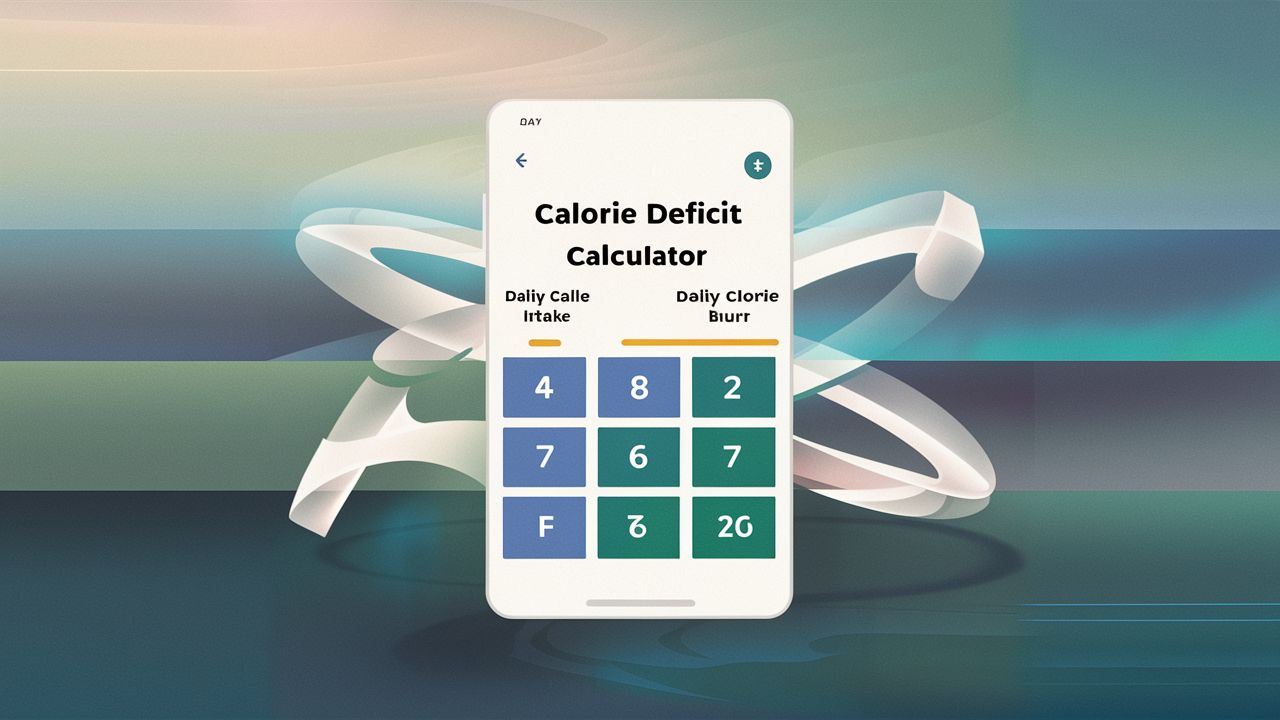In the pursuit of achieving weight loss goals, understanding the concept of calorie deficit is paramount. For many individuals, weight loss can seem like an insurmountable challenge, but with the right tools and knowledge, it becomes attainable. One such tool that plays a crucial role in weight loss journeys is the calorie deficit calculator.
Introduction to Calorie Deficit
Before delving into the intricacies of calorie deficit calculators, it’s essential to grasp the fundamental concept of a calorie deficit. Simply put, a calorie deficit occurs when you consume fewer calories than your body expends over a given period. This imbalance prompts your body to tap into its fat stores for energy, resulting in weight loss.
Understanding Weight Loss Goals
Setting clear and achievable weight loss goals is the cornerstone of any successful journey towards a healthier lifestyle. Whether your aim is to shed a few pounds or undergo a significant transformation, establishing realistic targets provides direction and motivation.
Importance of Calorie Deficit Calculator
A calorie deficit calculator serves as a valuable tool in the quest for weight loss by helping individuals determine their daily caloric needs. By inputting factors such as age, weight, height, activity level, and weight loss goals, these calculators generate personalized recommendations for calorie intake.
How Calorie Deficit Works
When you consistently consume fewer calories than your body requires for maintenance, it creates a deficit. This deficit forces your body to utilize stored fat as fuel, leading to gradual weight loss over time.
Factors Influencing Calorie Deficit
Several factors influence the magnitude of the calorie deficit needed to achieve weight loss, including metabolic rate, activity level, body composition, and genetics. Understanding these variables enables individuals to tailor their approach to calorie restriction effectively.
Choosing the Right Calorie Deficit
Opting for an appropriate calorie deficit is crucial to ensure sustainable and healthy weight loss. While aggressive deficits may yield rapid results initially, they can be unsustainable in the long term and may lead to muscle loss and metabolic slowdown.
Benefits of Using a Calorie Deficit Calculator
Utilizing a calorie deficit calculator offers numerous advantages, including precision in determining calorie requirements, customization based on individual characteristics, and the ability to track progress over time.
Step-by-Step Guide to Using a Calorie Deficit Calculator
- Gather necessary information: Input data such as age, weight, height, activity level, and weight loss goals.
- Calculate maintenance calories: Determine your baseline calorie needs for weight maintenance.
- Establish calorie deficit: Set an appropriate deficit based on your desired rate of weight loss.
- Monitor progress: Regularly reassess your calorie intake and adjust as needed to ensure continued progress towards your goals.
Common Mistakes to Avoid
Despite its simplicity, calculating and implementing a calorie deficit can be challenging. Common pitfalls to avoid include underestimating portion sizes, neglecting to account for liquid calories, and failing to adjust calorie intake as weight changes.
Monitoring Progress with Calorie Deficit
Regularly tracking your progress is essential to gauge the effectiveness of your calorie deficit strategy. Keep a food diary, monitor changes in body composition, and adjust your approach as necessary to stay on course towards your goals.
Tips for Maximizing Weight Loss with Calorie Deficit
- Focus on nutrient-dense foods: Prioritize whole, unprocessed foods to ensure adequate nutrition despite calorie restriction.
- Stay hydrated: Drink plenty of water throughout the day to support metabolism and curb cravings.
- Incorporate physical activity: Combine calorie deficit with regular exercise to maximize fat loss and preserve lean muscle mass.
Incorporating Exercise with Calorie Deficit
While diet plays a primary role in creating a calorie deficit, incorporating regular exercise further enhances weight loss efforts. Aim for a combination of cardiovascular exercise and strength training to maximize calorie expenditure and promote overall health.
Balancing Nutritional Needs
Maintaining a balanced diet is essential to ensure that your body receives the nutrients it needs for optimal function. Emphasize a variety of food groups, including lean proteins, whole grains, fruits, and vegetables, to support overall well-being.
Overcoming Plateaus
Weight loss plateaus are a common occurrence and can be frustrating for individuals striving to reach their goals. To overcome plateaus, consider adjusting your calorie intake, varying your exercise routine, or seeking support from a healthcare professional.
Conclusion
Achieving weight loss goals requires dedication, perseverance, and a strategic approach. By incorporating a calorie deficit calculator into your regimen and adhering to a balanced diet and exercise routine, you can make significant strides towards a healthier, happier you.
FAQs
- What is a calorie deficit calculator? A calorie deficit calculator is a tool used to determine the number of calories an individual should consume to achieve weight loss goals.
- How does a calorie deficit work? A calorie deficit occurs when you consume fewer calories than your body expends, prompting it to utilize stored fat for energy, resulting in weight loss.
- Can I lose weight without a calorie deficit? While possible, sustained weight loss typically requires creating a calorie deficit through a combination of diet and exercise.
- Is it safe to create a large calorie deficit for rapid weight loss? Rapid weight loss achieved through extreme calorie restriction is often unsustainable and may lead to negative health consequences. It’s advisable to aim for gradual, sustainable weight loss.
- How often should I reassess my calorie intake? It’s recommended to regularly reassess your calorie intake every few weeks to ensure that it aligns with your current weight loss goals and progress.



